
In 1241, a man named William Marise, the son of an English nobleman, was convicted of piracy. His punishment was to be publicly ripped apart into four pieces.
It was known then as 'godly butchery' or 'three deaths'. Today, we recognize this gruesome method of execution - one that was unique to England and is synonymous with the medieval period as being hanged, drawn, and quartered.
But why was Marise forced to meet such a gruesome end? Committing piracy was considered an attack on the sovereign and therefore classed as treason. Treason was worse than murder, since it was said to challenge the God-given order of the kingdom and society, and as such, had to be punished in the most severe way possible. When Marise suffered the fate in 1242 - the first person in recorded history to do so he was considered the worst of all criminals: a traitor.
But more than a punishment, the purpose of hanging, drawing, and quartering was to establish the boundaries of normal behavior. The people who deserved such an end were not meant to be seen as human, and the pain, humiliation, and brutality were intended to create a separation between the audience and the condemned. The message was that 'normal' men would not suffer the 'three deaths'.
This story is from the {{IssueName}} edition of {{MagazineName}}.
Start your 7-day Magzter GOLD free trial to access thousands of curated premium stories, and 9,000+ magazines and newspapers.
Already a subscriber ? Sign In
This story is from the {{IssueName}} edition of {{MagazineName}}.
Start your 7-day Magzter GOLD free trial to access thousands of curated premium stories, and 9,000+ magazines and newspapers.
Already a subscriber? Sign In
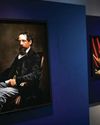
'Dickens's evocation of the fears, excitement and confusion of childhood is peerless'
DR LEE JACKSON ON WHY CHARLES DICKENS REMAINS RELEVANT TODAY
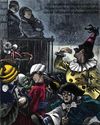
THE AUTHOR GOES ABROAD
Dickens expanded his horizons and boosted his fan-base by venturing overseas - but global fame came with a cost
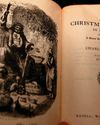
REVIVING THE FESTIVE SPIRIT
A Christmas Carol wasn't just a bestseller - it changed the way that Britons chose to mark the festive season
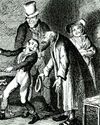
GIVING THE POOR A VOICE
From Hard Times to Oliver Twist, Charles Dickens used his pen to help illuminate the lives of the less fortunate
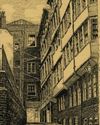
A JOURNEY THROUGH DICKENS'S LONDON
The works of Charles Dickens are synonymous with visions of Victorian London. We talk to Dr Lee Jackson about the author's love of the capital, and the locations that most inspired him
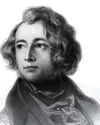
EXCEEDING EXPECTATIONS
Dr Lee Jackson chronicles Charles Dickens's journey from down-at-luck teenager to titan of Victorian literature
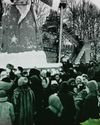
GIFTS, TREES & FEASTING
We take a journey through the photo archives to reveal how Christmas and its many traditions have been celebrated over the years - and around the world
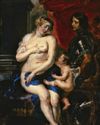
WHAT GREAT PAINTINGS SAY
We explore the story behind an allegorical painting that celebrates the triumph of love over hate, peace over war
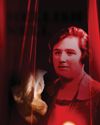
HELLISH NELL
Malcolm Gaskill delves into the life of Helen Duncan - the fraudulent Scottish medium whose ectoplasm-filled seances saw her ending up on the wrong side of the law

7 THINGS YOU (PROBABLY) DIDN'T KNOW ABOUT THE WHITE HOUSE
Presidential historian Dr Lindsay M Chervinsky reveals some of the most surprising facts about the world-famous US residence